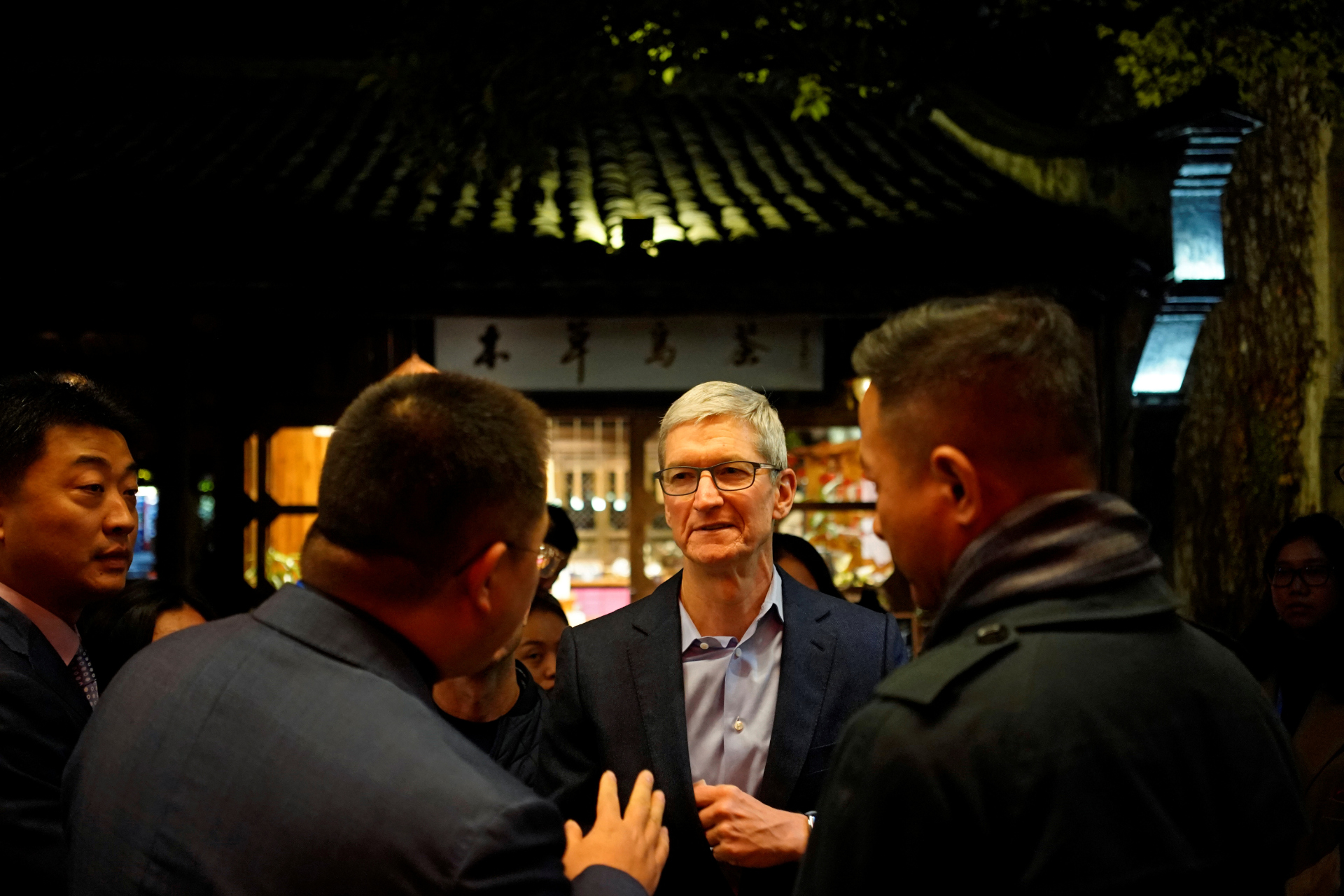What did Apple get out of its secret, $275 billion China deal in 2016?
In the spring of 2016, Apple CEO Tim Cook successfully lobbied Chinese officials to make a massive five-year deal, committing the company to invest billions in the Chinese economy. The Information, which revealed the existence of the deal, says that it helped Apple secure multiple regulatory exemptions and become the top-selling smartphone brand in China.

Apple made a secret five-year $275 billion deal in 2016 that has been critical to its expansion in the Chinese market, according to an extensive report in The Information (paywall).
- In the spring of 2016, Apple executives were reportedly “scrambling to salvage the company’s relationship with Chinese officials, who believed the company wasn’t contributing enough to the local economy.”
- Apple’s iBooks Store and iTunes Movies had been abruptly shut down by Chinese regulators just six months after launch, and the company was struggling to compete in the smartphone market against quickly growing rivals such as Huawei, Xiaomi, Oppo, and Vivo.
- CEO Tim Cook took the lead in personally lobbying Chinese officials, making three critical trips to China that year, the most important in May, when he and other executives met with senior government officials at Zhongnanhai, the secretive leadership compound in Beijing.
- At that meeting, Apple signed a previously unreported memorandum of understanding (MOU) with the National Development and Reform Commission (NDRC) that “committed Apple to aiding roughly a dozen causes favored by China.”
What was in the deal?
The Information reports these specifics:
- Apple made “a pledge to help Chinese manufacturers develop ‘the most advanced manufacturing technologies’ and ‘support the training of high-quality Chinese talents.’”
- Apple “promised to use more components from Chinese suppliers in its devices, sign deals with Chinese software firms, collaborate on technology with Chinese universities and directly invest in Chinese tech companies.”
- A pledge from Apple to invest “many billions of dollars more” than its current levels in the Chinese market.
MOUs are not uncommon between foreign companies or governments and China, but this one was unusually secretive and massive, estimated in separate internal documents to “amount to more than $275 billion in spending over five years,” with an automatic extension for a sixth year, through May 2022, if neither side objected.
- Apple “fulfilled most of the promises” it made in the deal, The Information says, through actions such as establishing R&D centers in multiple Chinese cities, forging partnerships with Chinese companies, and investing in renewable energy projects.
What did Apple get out of the deal?
The deal was enormously successful and profitable for Apple, according to The Information’s reporting. Since 2016, Apple has repeatedly achieved the rare feat of convincing Beijing to back down on, or make exemptions to, regulations, even ones ostensibly concerning national security. As a result, Apple has been able to:
- Continue releasing iPhones in China with some pre-installed and undeletable apps.
- Avoid sharing its mobile operating system source code with local authorities.
- Maintain control over its “hardware security modules that store customer encryption keys required to unlock iCloud content in China.”
But perhaps most critically, Apple has avoided any harsh and targeted backlash against the company, even as U.S.-China relations have dramatically worsened since 2016.
- “China still hasn’t retaliated against Apple even though U.S. sanctions in recent years have effectively killed the smartphone business of Huawei, China’s flagship telecom company,” The Information points out, even though “Apple has been one of the biggest beneficiaries of Huawei’s pain.”
- Apple’s iPhone is now the top-selling smartphone in China as of October, according to Counterpoint Research, and “China now represents nearly 19% of Apple’s total sales, up from around 15% a year earlier,” The Information notes.
See also:
- Inside Apple’s compromises in China: A Times investigation / NYT (from May)
- Apple takes down Quran app in China / BBC (from October)
- Elon Musk needs China. China needs him. The relationship is complicated. / WSJ (paywall)
China news, weekly.
Sign up for The China Project’s weekly newsletter, our free roundup of the most important China stories.






